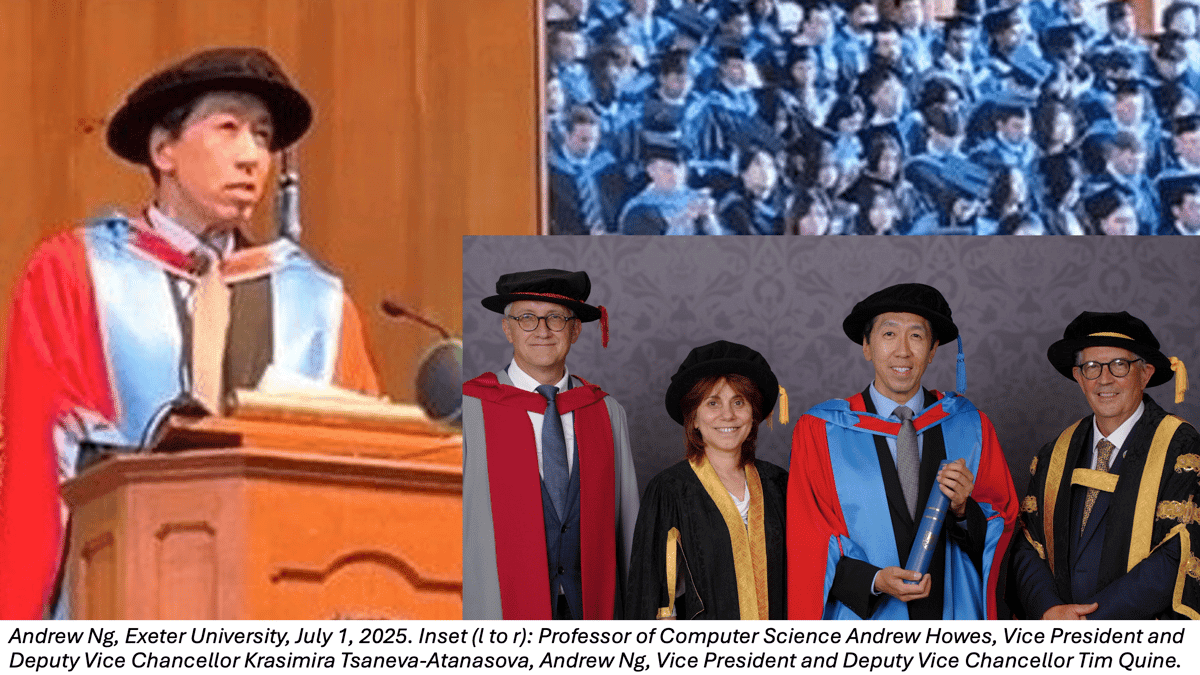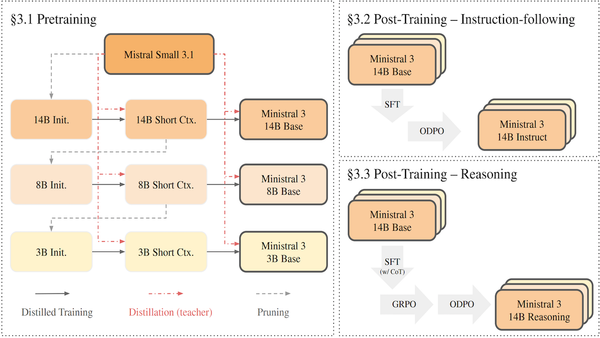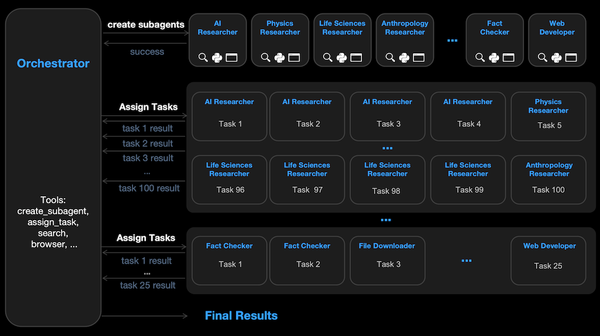AI Transformation Comes to Universities: Exeter University groups computer science with business and environmental science, creating synergies that span AI, the economy, and the natural environment.
Just as many businesses are transforming to become more capable by using AI, universities are too.

Dear friends,
Just as many businesses are transforming to become more capable by using AI, universities are too. I recently visited the UK to receive an honorary doctorate from the University of Exeter’s Faculty of Environment, Science and Economy. The name of this faculty stood out to me as a particularly forward-looking way to organize an academic division. Having Computer Science sit alongside Environmental Science and the Business School creates natural opportunities for collaboration across these fields.
Leveraging AI leads a university to do things differently. Speaking with Vice Chancellor Lisa Roberts, Deputy Vice Chancellor Timothy Quine, and CS Department Head Andrew Howes, I was struck by the university leadership’s pragmatic and enthusiastic embrace of AI. This is not a group whose primary worry is whether students will cheat using AI. This is a group that is thinking about how to create a student body that is empowered through AI, whether by teaching more students to code, helping them use AI tools effectively, or showing them what’s newly possible in their disciplines.
Exeter is a wonderful place to create synergies between AI, environmental science, and business. It hosts 5 of the world’s top 21 most influential climate scientists according to Reuters, and its scholars are major contributors to reports by the UN’s IPCC (Intergovernmental Panel on Climate Change) as well as pioneers in numerous areas of climate research including geoengineering, which I wrote about previously. Its Centre for Environmental Intelligence, a partnership with the Met Office (the UK’s national weather service), applies AI to massive climate datasets. More work like this is needed to understand climate change and strategies for mitigation and adaptation. Add to this its Business School — named Business School of the Year by the consultancy Times Higher Education — and you have the ingredients for building applications and pursuing interdisciplinary studies that span technological, environmental, and economic realities.
Having been born in the UK and spent most of my career in Silicon Valley, I find it exciting to see Exeter’s leadership embrace AI with an enthusiasm I more often associate with California. The UK has always punched above its weight in research, and seeing that tradition continue in the AI era is encouraging.
Just as every company is becoming an AI company, every university must become an AI university — not just teaching AI, but using it to advance every field of study. This doesn’t mean abandoning disciplinary expertise. It means maintaining technical excellence while ensuring AI enhances every field.
Like almost all other universities and businesses worldwide, Exeter’s AI transformation is just beginning. But the enthusiastic embrace of AI by its leadership will give it momentum. As someone who is proud to be an honorary graduate of the university, I look forward to seeing what comes next!
Keep building,
Andrew




